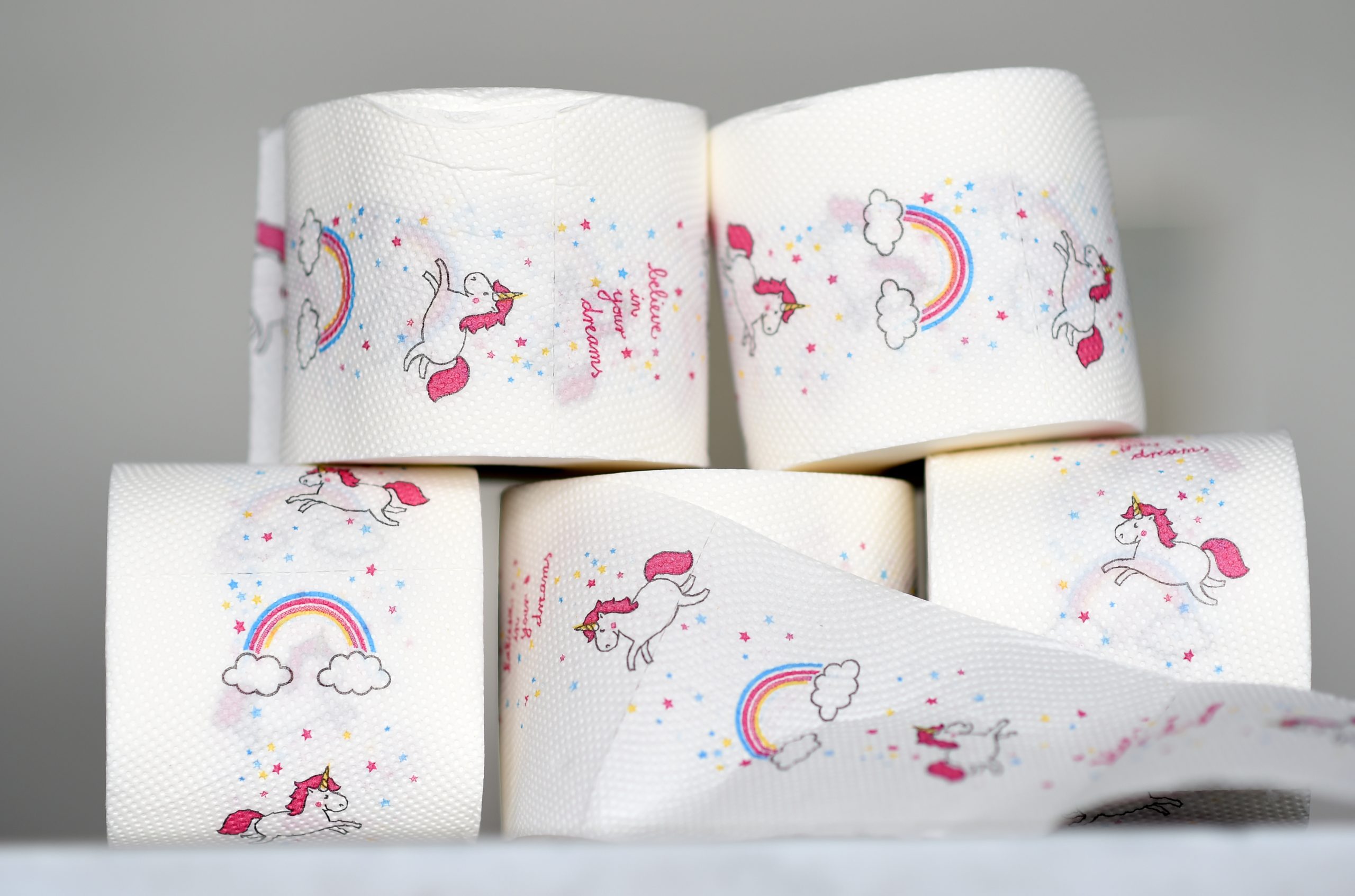Scientists often seem to be on a quest for sacred chalices or sterling ammo. But a group of microbiologists has now set out on a more odorous odyssey—one to find fantastical feces.
With data on poop’s therapeutic potential piling up, scientists have gotten wind of the possibility that some among us may be extraordinary excreters, dropping deuces with divine healing powers. In a review article published Monday, January 21 in Frontiers in Cellular and Infection Microbiology, researchers at the University of Auckland dig out all the evidence for these deific defecators from the mound of studies on fecal microbiota transplantations, or FMTs.
An FMT is exactly what it sounds like—fecal matter containing gobs of gut microbes is dumped, squirted, gulped, or otherwise delivered into the bowels of patients. The idea is that the relocated microbial communities will restore or replace the patient’s own gut dwellers to improve health. Intestinal microbes can play a role in nutrition, metabolism, immune system function, and infection protection, after all. Thus, patients with gut communities that are imbalanced and dysfunctional—aka dysbiotic—or are overrun with pathogens stand to see health benefits from such an intestinal repoopulation.
The most potent proof of FMTs’ benefits is flushed from studies on patients with Clostridium difficile infections. Usually, C. diff bacteria are kept in check by healthy gut communities. But when the opportunity arises—say, if a person takes antibiotics that knock back their beneficial belly bugs—C. diff can run amok, causing inflammation and diarrhea. And the infection can be hard to pinch off. It’s treated with more antibiotics, which only work about 80 percent of the time. The remaining 20 percent of patients will have recurrent infections. This is where FMTs plop in, essentially dirty-bombing the pathogens. A recent analysis of case studies and seven randomized trials found that FMT had a cure rate of about 92 percent in patients with recurrent C. diff infections.
Stinky findings
But, while FMTs have provided satisfying relief from C. diff infections, scientists have strained to document such success in treating other conditions involving dysbiosis. These include everything from inflammatory bowel disease (IBD), irritable bowel syndrome (IBS), and allergic colitis, to blood, liver, metabolic, and neurological conditions. FMT could hypothetically help these conditions. But from the few generally small trials so far, results have been muddy. Some patients benefit, while others don’t.
A few interesting nuggets have floated out of the data, though. Namely, scientists have repeatedly gotten hints that preternatural poopers exist. The first whiff of evidence came in 2015 from a randomized clinical trial using FMT via enema to treat 75 patients with ulcerative colitis, a type of IBD. The FMTs beat out placebo treatments but only had a cure rate of 24 percent. When the researchers sifted through the data, however, they found that seven of the nine patients who went into remission received fecal matter from the same donor.
Researchers squeezed out a similar finding in 2017 from another randomized trial of FMTs for IBD treatment. In this case, researchers tried pooling fecal material from different donors to maximize the effects of any powerhouse poo. Again, they only saw about a 27-percent cure rate. But diving into the data, they found that pools that contained stool from one particular donor were far more likely to cure patients than all the other mucky medleys.
Crappy crusade
Thus, loo lore was born. “The term “super-donor” has been proposed to describe donors whose stool results in significantly more successful FMT outcomes than the stool of other donors,” the Auckland researchers write.
Other FMT trials, including one involving patients with metabolic conditions, have dropped similar hints of super donors. But researchers still aren’t sure how to fish them out. Efforts to use the microbial makeup of stool—that is, its overall bacterial diversity as well as relative abundance of specific species—has failed to reliably pick out super poopers, the authors report. (Standard methods for screening FMT stool donors generally involve making sure they don't harbor pathogens and may assess bacterial diversity.)
The authors point out that a range of other factors may be critical in determining the success of an FMT. For instance, an FMT recipient’s own genetics may play a role. Likewise, a recipient’s native microbes and immune responses have the potential to elbow out transplanted newcomers. And the recipient’s diet and medications—particularly subsequent antibiotic usage—can influence FMT outcomes.
But, other studies have found that bacteria may not even be the key to FMTs’ benefits. A small study of five patients with C. diff infections found that fecal filtrates could alone cure the infections. The filtrates didn’t contain any bacteria or even the beneficial small molecules that they make. The filtrates just had bacterial debris, proteins, DNA, antimicrobial compounds, metabolites, and viruses, the Auckland researchers note.
“As more FMT-related clinical and microbial data are generated, it is becoming clear that ‘one stool does not fit all’ in the context of treating chronic diseases with microbial dysbiosis,” the authors conclude.
Still, they write, “the donor plays an influential role in FMT outcomes,” and the quest for super donors is a noble one. “Further characterization of super-donors will likely result in the development of more refined FMT formulations to help standardize therapy and reduce variability in patient response.”
Frontiers in Cellular and Infection Microbiology, 2018. DOI: 10.3389/fcimb.2019.00002 (About DOIs).


